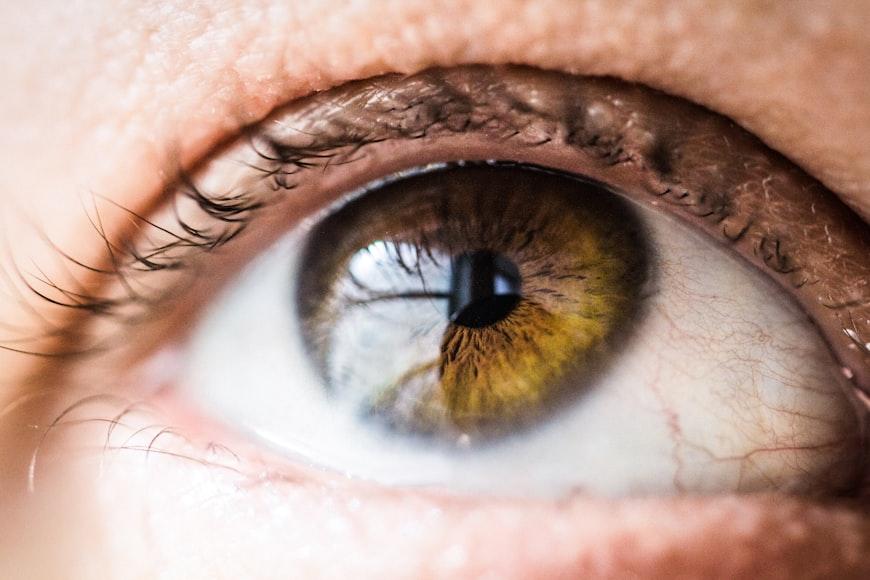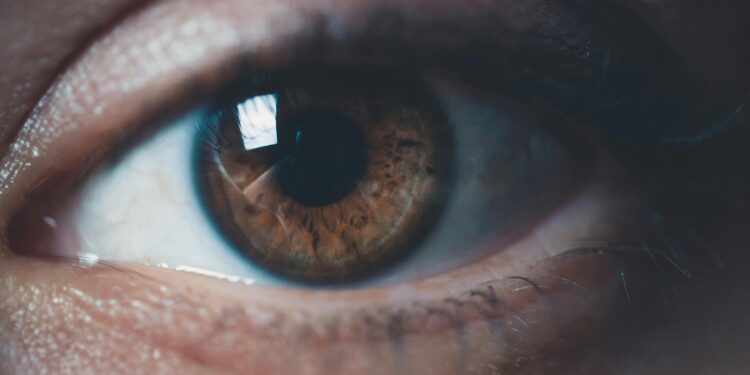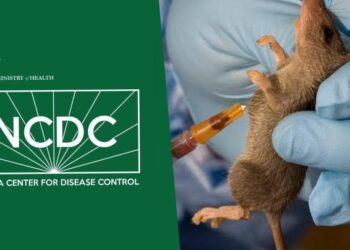Macular degeneration is a type of eye condition that affects the eyesight, especially the ability of a person to see things clearly in the center of their vision. This condition affects a tiny part of the retina called the macula, causing it to break down or stop working properly.
Basically, the retina collects the pictures you see and sends them to your brain. But the macula allows you to see fine details of the picture like the words on the page or someone’s face.

How The Eye Works
Just like any other part of the body, the eyes are made up of different parts, all of which help us to see clearly.
- Cornea and Lens: These parts are at the front of the eye which bend and focus light onto the retina.
- Retina: This is a layer at the back of the eye that captures light and turns it into signals for the brain.
- Macula: This is a small part of the retina that helps you see sharp details in the center of your vision.
- Optic Nerve: This nerve carries signals from the retina to your brain so you can see.
What Exactly is Macular Degeneration?
Macular degeneration is when the macula gets weaker or damaged over time, which causes you to lose your ability to see things clearly in the center of your vision. It is more common in older people, but younger people can still get this condition. Macular degeneration comes in different types:
Age-related macular degeneration (AMD)
AMD is the most common type and usually happens to people over 50 years old. There are different stages of AMD, which include:
- Early AMD: At this stage, you might not notice any vision problems, but there will be yellow deposits called drusen that start to form under the retina.
- Immediate AMD: After a while, you may start to notice blurry spots, especially when reading or looking at fine details. This means that the drusen is bigger and the macula is more affected.
Late AMD
This stage has two forms:
- Dry AMD (atrophic): This happens when the macula gets thinner and stops working well over time, which causes vision loss to slowly happen.
- Wet AMD (Neovascular): In this stage, new and abnormal blood cells grow under the retina. This can leak fluid or blood, causing sudden and serious vision loss.
Other type of macular degeneration
Stargardt’s disease: Stargardt’s disease is a genetic form of macular degeneration which shows up in children or teenagers. However, it is a rare condition but can cause major vision loss early in life.
Symptoms of Macular Degeneration
- Blurry vision
- Trouble recognizing people’s faces
- Always needing light to read or do close-up work
- Blind spots in the center of your vision
- A straight line may start to look wavy or bent
- Lost or central vision
Causes of Macular Degeneration
Age-related factors
Getting old is one of the biggest reasons people develop macular degeneration, as it usually occurs in older people. As we age, parts of our bodies don’t work as well as they used to, and the macula is no exception. The macula can start to wear out, especially after the age of 50. This natural aging process makes it harder for macula to function properly, which causes vision problems.
Lifestyle Factor
Smoking: Smoking is one of the worst things you can do for your eyes. It reduces blood flow and introduces harmful chemicals that can damage the delicate tissues in your macula. Smokers are more likely to get macular degeneration than non-smokers.
Diet: What you eat plays a big role in your eye health. If your diet lacks essential vitamins, like vitamin C, vitamin E, and zinc, your eyes might not have the nutrients they need to stay strong.
Obesity: Being overweight doesn’t only affect your heart or your muscles, it can also affect your eyes. Extra weight can cause problems like high blood pressure, which can harm the blood vessels in your macula.
Sun exposure: Spending a lot of time in the sun without wearing sunglasses can affect the eyes over time. UV rays from sunlight can damage the retina and the macula, which increases your risk of developing macular degeneration as you age.
Genetic factors
Your family history also plays a big role in whether or not you develop macular degeneration. If one or more people in your family have had macular degeneration, there is a higher chance that you could develop it too. Certain genes are passed down from parents to children. These genes can make your macula more vulnerable to damage.
Bottom Line
The condition known as macular degeneration affects the macula, which is the central part of the eye that gives you clear vision. Particularly as you age, it can create blind patches, blurred vision, and difficulty remembering faces. While it’s most common in older people, younger people can get rare types like Stargardt’s disease.

















